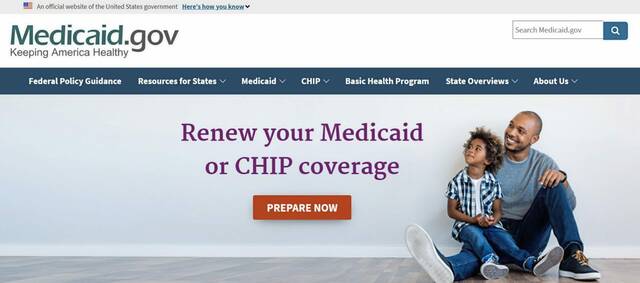This month, Medicaid is finally returning to normal — but “normal” was never that great. Currently, an estimated 600,000 ineligible Pennsylvanians — many of whom are able-bodied, working-age adults — receive taxpayer-funded Medicaid benefits. Temporary pandemic provisions that prohibited states from regularly reviewing Medicaid eligibility expired this month, giving Pennsylvania the opportunity to shore up its Medicaid program and fix even pre-pandemic issues.
Medicaid was never intended to be a catch-all health care program. It was designed to provide care for the most vulnerable. State reforms should focus on ensuring that Medicaid resources are preserved for those that need it the most.
The good news is that the administrative change happening this month begins to do just that. On April 1, Pennsylvania began redetermining Medicaid eligibility for nearly 3.7 million residents after a three-year hiatus from regular eligibility renewals.
During the pandemic, the federal government put emergency procedures in place to expand eligibility for Medicaid via “continuous enrollment,” which meant that once a person qualified for Medicaid, they would stay in the program unless they died or moved out of state.
In other words, the federal government banned states from removing people from Medicaid — even if those individuals were no longer eligible for the program because they earned too much money.
The program is now the default health care plan for nearly 30% of our state population. It’s no surprise that Medicaid enrollment between 2020 and 2023 increased 52% for healthy adults, but only 21% for pregnant moms and kids.
Healthy adults enrolled in Medicaid are now diverting resources from the elderly and disabled when they have other resources available. Research from the Urban Institute estimates that, nationally, 53% of those on Medicaid who are not eligible have access to employer insurance.
The explosive growth of Medicaid is not sustainable. Medicaid is the largest single program in our state budget, growing 64% — compared to job growth of 5.4% — over the past decade. During the pandemic, Medicaid enrollment soared, reaching about 100 million people nationwide and 3,680,000 in Pennsylvania.
But even before the pandemic, Medicaid was a deeply broken program.
Patients on Medicaid report having less access to specialist care than patients with other types of coverage and face a benefit cliff that renders them ineligible for the program before they can afford coverage on their own. Enrollment fraud and waste plague the program; for example, people are enrolled multiple times in the same state.
Resuming checks for Medicaid eligibility is a first step, but Pennsylvania has a chance to improve the program—creating a more reliable safety net for the vulnerable and helping able-bodied individuals transition to higher-quality, private insurance.
Legislation proposed in the state House includes bills to enact work and community engagement requirements for healthy adults and to cross-check Medicaid enrollment with lottery winnings, death records, employment, income, residency and incarceration information available in other states. These reforms are popular, with a 2022 poll showing over 80% of Pennsylvanians support work or community engagement requirements and verifying eligibility twice a year for welfare recipients.
Other proposals include creating a state database of individuals and entities ineligible to receive Medicaid due to past fraud and a waiver eliminating mandatory hospital presumptive eligibility, a process in which hospitals assume patients are Medicaid eligible.
While the reforms will protect resources, the year-long redetermination process will have challenges. Rolling back continuous enrollment requires transparency from Pennsylvania’s Department of Human Services (DHS) and the managed care insurance companies. Companies that have a financial incentive to maintain ineligible enrollees because their compensation is based on enrollment.
And Pennsylvanians still don’t have a clear picture of how the department will approach these redeterminations. For example, are they prioritizing redeterminations for ineligible Pennsylvanians first? What provisions are in place for handling appeals?
At the bare minimum, taxpayers deserve regular updates from DHS on how eligibility reviews are going and the challenges those moving up and out are facing.
Resuming regular eligibility determinations — and passing commonsense reforms to preserve the intent of the program — will help ensure Medicaid benefits our most vulnerable and will improve the sustainability of the program for years to come.
Elizabeth Stelle is director of policy analysis for the Commonwealth Foundation. Twitter: @ElizabethBryan








